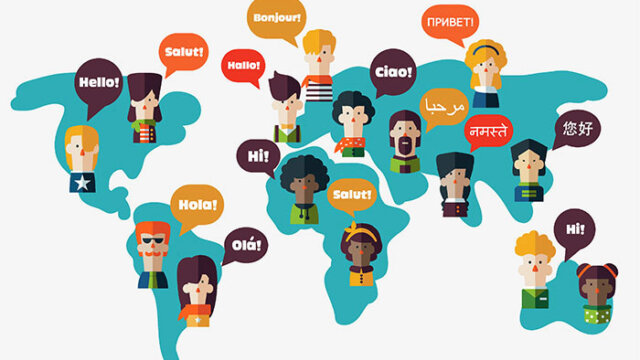
Create a multilingual website from your current forum/blog/website
- By Niko
- 2421 views
Discover how simple and easy can be the management of your translations from our management panel. It's easy to start your own free transaltion tool thanks to our free solution. The process is accessible to all internet users who want to have an online international website.
Want to run your own multilingual website but don’t know where to start? Translations Cloud is the place where to start.
What is a multi-lingual website ?
A multilingual website is a website where the content is written in more than one language. The information displayed in different languages is often the same, but maybe arranged for different audiences.
Booking.com is an example of a multi-lingual website as its content is available in 35 different languages.
Google Translator? Not that cool
Someone may tell you to use the free Google translate widget into your website. Your visitors just have to click on the widget button and all your content will be translated into another language of your visitors’ choice.
It’s a quick solution, but you are completely subject to how Google chooses to translate your text.
It’s probably the easiest solution to implement, but this translation tool is never perfect and may look unprofessional if you have a business website. But if you want to impress your visitors, then Google Translate is probably not the best option for you.
8 reasons why you need a multilingual website
#1 Internet is not onlt for English Users
Internet began as an English speaker's invention but times are changing. With the growing numbers of people buying personal computers and internet access available from Nigeria to New Zealand (and with the incredible support of Facebook new project internet.org), English speakers will soon be in the minority when it comes to internet use.
#2 Effective marketing tool
Having the ability to communicate to a whole new international audience in their own language will be a great result not only in a financial side but also in terms of marketing and awareness of your brand, service or product.
#3 New customers from all the world
Indeed, a multilingual website brings you new customers. By having your site accessible to thousands and thousands more of people you are sure your company is available across the globe. For non-English speaking users what will capture their attention, is to see more details in their own languages.
#4 Sales
With every language added to a website there is the potential for an increase of between 100% in sales. Even if a multilingual website is translated into a few of the major world languages, i.e. Russian, Italian, French, Romanian, German, Chinese, ... there is potentially a 600% increase in sales.
#5 Customer is the center of your company
A multilingual website is the proof that your customers are the real center of your company. This will show that you care about them and you want to offer the website in their language. If the customer thinks you care, they will want to do business with you.
#6 Beat competitors
Look at your competitors - if they have multilingual websites then why don't you? If they don't, it is the moment to have something more than your competitors.
#7 Think round
Image is everything. A multilingual website demonstrates you think round and work internationally.
#8 Search engines and SEO !
Search engines, such as Google, Bing and many others, lead people to your website. But these ones are not the only search engines in the world, actually in countries as China, there are dedicated search engines for their own language... This means that a language-website will be better visible in a foreign search engine.
Furthermore, Google has recently included the possibility to run queries for your google search results in different languages, according to the sections of your multilingual websites.
6.909 languages out there!
Did you know that there are thousands and thousands of languages in the world ? With Translations Cloud you can manage unlimited languages for your websites, forum or blog, directly from your translation tool panel.




